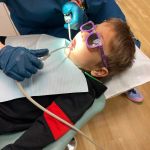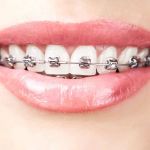The Importance of Preventive Dental Checkups: Protect Your Oral Health Early
- Why Preventive Dental Checkups Matter
- The Benefits of Preventive Dental Care
- What Happens During Preventive Dental Checkups?
- Common Oral Health Issues Prevented by Regular Checkups
- How to Make the Most of Your Preventive Dental Checkup
1. Why Preventive Dental Checkups Matter
Preventive dental checkups are the cornerstone of maintaining long-term oral health. These checkups are designed to catch dental problems before they become serious, reducing the need for expensive and invasive treatments down the line. Regular visits to the dentist help keep your teeth and gums healthy, preventing issues such as cavities, gum disease, and tooth loss. For both children and adults, regular checkups are essential to ensuring a healthy mouth and overall well-being.
In addition to the physical health benefits, regular checkups can also help you avoid the discomfort and stress that comes with dental emergencies. By prioritizing preventive care, you’re investing in a healthy smile that will last a lifetime.
2. The Benefits of Preventive Dental Care
Preventive dental checkups offer a wide range of benefits that go beyond just keeping your teeth clean. Here are some of the top benefits:
- Early Detection of Problems: One of the most important aspects of preventive dental care is early detection. Your dentist can spot issues such as cavities, gum disease, and even oral cancer in their earliest stages, making treatment easier and less costly.
- Maintaining a Healthy Smile: Regular cleanings and exams help keep your teeth free from plaque and tartar buildup, preventing decay and promoting overall oral hygiene. This leads to fewer fillings, less tooth sensitivity, and fewer trips to the dentist for restorative treatments.
- Preventing Gum Disease: Gum disease is one of the leading causes of tooth loss. Preventive checkups ensure that your gums remain healthy by addressing early signs of inflammation before they progress to more severe stages of gum disease.
- Better Overall Health: Your oral health is linked to your overall health. Poor oral health has been associated with a variety of systemic conditions, such as heart disease, diabetes, and stroke. Preventive dental care helps keep your whole body healthy.
By making preventive dental checkups a priority, you not only improve your smile but also contribute to your overall health and well-being.
3. What Happens During Preventive Dental Checkups?
During a typical preventive dental checkup, your dentist will perform several tasks to ensure that your teeth and gums are in good condition:
- Comprehensive Oral Examination: The dentist will thoroughly examine your teeth and gums to check for signs of decay, cavities, and gum disease. They will also look for early signs of oral cancer and other health issues.
- Cleaning and Polishing: A hygienist will clean your teeth, removing plaque, tartar, and surface stains. This is essential for maintaining healthy teeth and preventing cavities and gum disease.
- X-rays: Depending on your age and oral health, the dentist may recommend X-rays to get a better look at your teeth and jawbones. X-rays can help detect problems that aren’t visible to the naked eye, such as issues below the surface of the gums.
- Personalized Oral Hygiene Advice: The dentist or hygienist may provide tips on brushing, flossing, and other oral hygiene practices to ensure you are maintaining the best care at home.
These checkups typically take around 30 minutes to an hour and are a critical step in maintaining good oral health for the long term.
4. Common Oral Health Issues Prevented by Regular Checkups
Regular preventive dental checkups can help prevent a variety of common oral health issues. Some of the most common problems that can be avoided with routine care include:
- Cavities: Regular checkups allow your dentist to detect early signs of tooth decay, which can often be treated with a simple filling before they turn into more serious problems.
- Gum Disease: By addressing plaque buildup and gum inflammation early on, regular checkups help prevent the progression of gum disease, which can lead to tooth loss and other systemic health issues.
- Tooth Sensitivity: Regular exams can help identify the causes of tooth sensitivity, such as enamel wear, and recommend treatments to prevent it from becoming a chronic issue.
- Tooth Loss: Preventive care is one of the best ways to avoid tooth loss. Early detection and treatment of issues like cavities and gum disease can help you maintain your natural teeth for longer.
By staying on top of these potential issues, you can ensure that your smile stays healthy and vibrant for years to come.
5. How to Make the Most of Your Preventive Dental Checkup
To get the most out of your preventive dental checkups, consider the following tips:
- Be Consistent: Schedule regular dental checkups every six months. Consistency is key to maintaining good oral health and preventing problems from becoming serious.
- Share Your Concerns: If you have any specific concerns, such as tooth sensitivity or bleeding gums, be sure to mention them during your visit so that your dentist can address them.
- Follow Post-Visit Advice: After your checkup, be sure to follow any advice or instructions provided by your dentist, such as changes to your oral hygiene routine or recommendations for additional treatments.
Taking these steps will help you maximize the benefits of your dental exams, ensuring that you maintain optimal oral health.







 Eastern Dental4.0 (875 review)
Eastern Dental4.0 (875 review) Santa Margarita Pediatric Dentistry4.0 (156 review)
Santa Margarita Pediatric Dentistry4.0 (156 review) Lino Lakes Family Dentistry5.0 (110 review)
Lino Lakes Family Dentistry5.0 (110 review) Aava Dental Mission Viejo4.0 (170 review)
Aava Dental Mission Viejo4.0 (170 review) Summer Smile Dental South Gate4.0 (461 review)
Summer Smile Dental South Gate4.0 (461 review) Capital Dental Care4.0 (20 review)
Capital Dental Care4.0 (20 review) The Importance of Oral Health Education During Pregnancy for a Healthy Pregnancy
The Importance of Oral Health Education During Pregnancy for a Healthy Pregnancy Best Tips for Brushing Your Teeth Properly for Healthy Gums: Essential Techniques for Oral Health
Best Tips for Brushing Your Teeth Properly for Healthy Gums: Essential Techniques for Oral Health Why Skipping Dental Checkups Can Lead to Bigger Oral Health Problems
Why Skipping Dental Checkups Can Lead to Bigger Oral Health Problems Advantages of Porcelain Dental Restorations
Advantages of Porcelain Dental Restorations How Can Diabetes Cause Tooth and Gum Problems? Preventing and Managing Oral Health Issues
How Can Diabetes Cause Tooth and Gum Problems? Preventing and Managing Oral Health Issues Healthy Habits for Promoting Good Oral Health and Hygiene: Tips for a Healthy Smile
Healthy Habits for Promoting Good Oral Health and Hygiene: Tips for a Healthy Smile